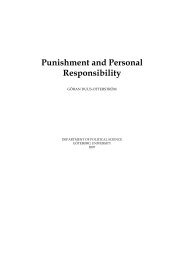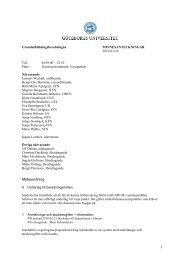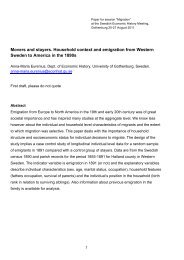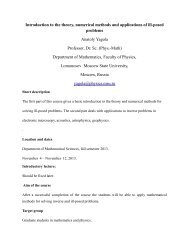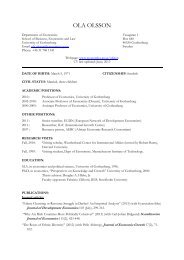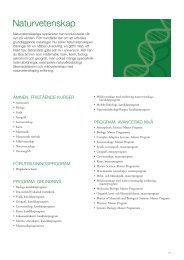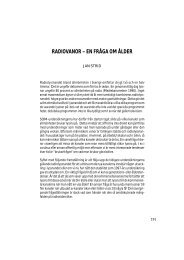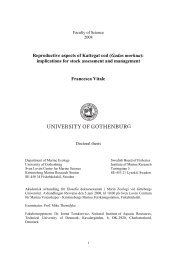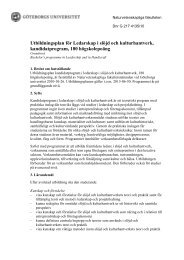Equal Opportunities Work - Theories about Practice
Equal Opportunities Work - Theories about Practice
Equal Opportunities Work - Theories about Practice
You also want an ePaper? Increase the reach of your titles
YUMPU automatically turns print PDFs into web optimized ePapers that Google loves.
two terms ate highlighted, including the asymmetrical, hierarchically<br />
structured relationships between men and women or between what is<br />
considered "feminine" and what is considered "masculine". In the latter case,<br />
the feminine and the masculine are regarded as structures that can be borne by<br />
both women and men, thus shifting the focus from the individual to the<br />
structural level. Applying a gender perspective to equal opportunities work<br />
means studying the relationships between power and sex in contexts such as<br />
organizations. Below, the term gender perspective is used in that sense.<br />
Let us now return to the two lines of argument <strong>about</strong> how a gender<br />
perspective promotes research and raises its quality. There are two different<br />
ways used of legitimatising gender research: one is that its research perspective<br />
allows neglected areas to come to the fore, gives us new approaches, new<br />
knowledge, etc. The other is that gender research promotes equal<br />
opportunities.<br />
It should be clear that these two ways of legitimatizing gender research must<br />
not be confused. In the first case, what is being discussed is the significance of<br />
gender research within science and scholarship, in the second case it is a<br />
matter of one potential field of application of gender reseurch: using the<br />
knowledge gained through it in equal opportunities work in practice. I hesitate<br />
to claim, a priori, that gender research has an overall positive impact on<br />
research quality. Of course it is a good thing when research expands to new<br />
fields and new problem complexes. But what determines the quality of<br />
research is, in my view, more the content of its hypotheses and arguments,<br />
methods, empirical tools and analyses than its subject matter. This is as true of<br />
gender research as of any other research discipline.<br />
Is it appropriate to use equal opportunities to legitimatize gender research?<br />
Is doing gender research also doing equal opportunities work? Above, it is<br />
clear that gender research is legitimatised through equal opportunities work in<br />
at least two ways: in that it contributes to equality of opportunity at<br />
universities, and in that it provides a theoretical foundation for wellfunctioning<br />
equal opportunities work.<br />
The connection between promoting gender research and recruiting the<br />
underrepresented sex is not a perfectly obvious one, and it is questionable how<br />
much weight this argument can tolerate. Gender research may be seen as one<br />
way of improving equality of opportunity, in that carrying out gender research<br />
is one way of promoting greater equality in the research environment, and the<br />
recruitment of more female research scholars. However, the extension of this<br />
argument is based on the preconception that women should do their research<br />
25




